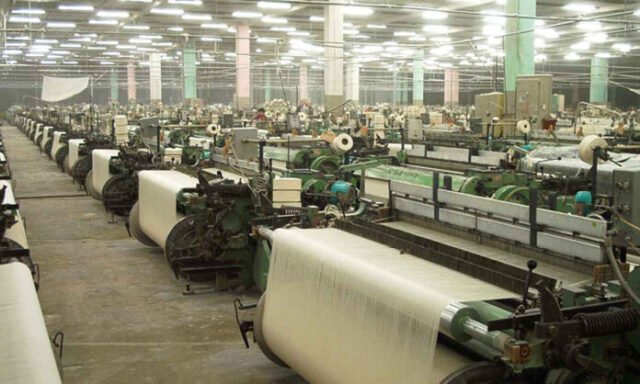In the fast-paced world of fashion, where trends change with the seasons and demand often overshadows ethics, a quiet revolution is reshaping the future of apparel. It’s not led by catwalks or couture houses but by conscious choices, innovation, and responsibility. At the heart of this transformation are companies that have chosen to align style with sustainability.
The evolution of a garment manufacturing company is no longer solely about cutting, stitching, and delivering on time. It’s about making smarter choices—ones that consider environmental impact, labor rights, and long-term value. That’s where sustainable garments manufacturers are stepping up, weaving a new narrative for fashion’s future.
The Shift from Fast to Thoughtful Fashion
For decades, the fashion industry thrived on volume and speed. But the cost of fast fashion became painfully clear—landfills overflowing with discarded clothes, toxic dyes polluting water bodies, and workers subjected to poor conditions.
As consumers became more aware, they began asking the right questions: Who made my clothes? Where did this fabric come from? Was it produced ethically? And in response, brands began seeking manufacturing partners who could help them uphold their values, not just their bottom line.
This gave rise to a new kind of garment manufacturing company—one that doesn’t just deliver garments but also stands as a partner in purpose.
What Sets Sustainable Manufacturers Apart?
A sustainable garments manufacturer doesn’t just aim to reduce its carbon footprint; it redefines every stage of production with sustainability in mind. This includes:
- Eco-friendly materials: Organic cotton, bamboo, and recycled polyester are just a few of the materials replacing conventional ones.
- Water and energy conservation: Advanced dyeing techniques, closed-loop water systems, and solar energy are becoming common.
- Fair labor practices: Ensuring safe working environments and fair wages, often with third-party certifications.
- Minimal waste production: Innovative pattern-making and upcycling fabric scraps help cut down on textile waste.
In essence, these companies balance productivity with responsibility—something every forward-thinking brand now expects.
Sustainability Isn’t Just a Buzzword—It’s Good Business
There’s a growing myth that sustainability costs more. But long-term, it pays off. Brands partnering with ethical manufacturers see stronger customer loyalty, positive brand perception, and better alignment with emerging global regulations on environmental compliance.
In fact, for a garment manufacturing company to remain relevant today, embracing sustainability is not optional—it’s strategic. Investors, retailers, and end consumers are all aligning around ESG (Environmental, Social, and Governance) metrics.
Being a sustainable garments manufacturer is not only about ethics—it’s also about future-proofing operations.
Technology and Transparency
One of the biggest drivers of this change has been technology. Blockchain is helping track the journey of each garment—from raw fiber to the rack—while AI-powered design systems help reduce overproduction.
Customers now expect transparency, and modern manufacturers deliver it with QR codes on garments, digital traceability, and certifications like GOTS, OEKO-TEX®, and Fair Trade.
Moreover, automation and smart systems are making sustainability scalable, allowing companies to deliver bulk orders while maintaining ethical standards.
The Human Element
While technology plays a significant role, the heart of sustainability lies in human values. Skilled artisans, pattern makers, and tailors are the lifeblood of the fashion supply chain. A garment manufacturing company that invests in its people—not just machines—is investing in the future.
Sustainable companies often go beyond compliance, offering healthcare, education programs, and growth opportunities for their employees. They understand that when workers thrive, quality improves and turnover decreases.
Collaborating for a Greener Future
Fashion is collaborative by nature. Designers, suppliers, and marketers must work in sync. The same applies to sustainability. Manufacturers and brands must treat sustainability as a shared mission, not a check-box initiative.
Choosing a sustainable garments manufacturer isn’t just a procurement decision—it’s a partnership toward a greener, kinder future.
The best partnerships are those where brands and manufacturers co-create—exploring new fabrics, experimenting with cleaner dyes, or developing circular models where clothes are returned and remade.
Final Threads: Why This Matters More Than Ever
Consumers are no longer shopping based only on aesthetics or price. They want purpose. They want to know their clothing choices support a better world. They’re looking beyond logos and labels, toward values.
As climate change becomes an undeniable reality and social justice takes center stage, the pressure is on for every garment manufacturing company to reconsider its practices. Those that embrace sustainability early will lead the industry. Those that ignore it risk becoming obsolete.
Wrapping Up
Fashion doesn’t have to cost the earth. It can reflect our creativity and our conscience. The future belongs to companies that can stitch style with sustainability—one garment at a time.
For brands seeking to lead rather than follow, partnering with a sustainable garments manufacturer isn’t just the smart choice. It’s the right one.







